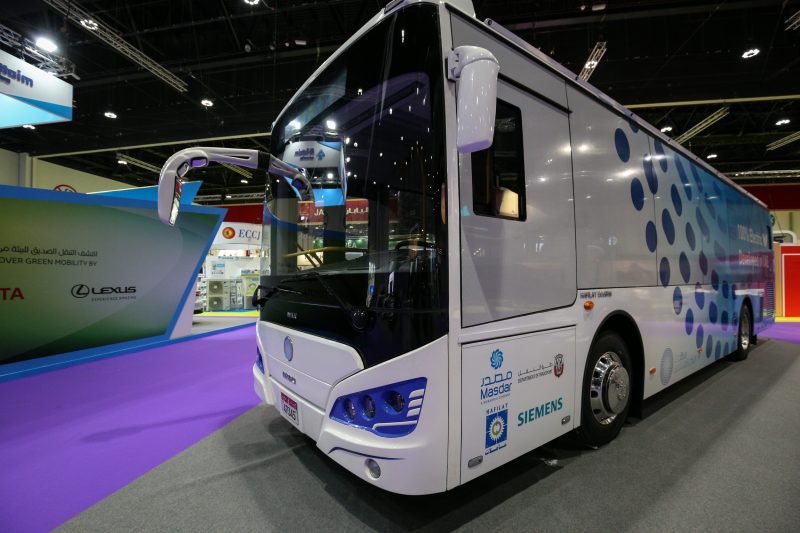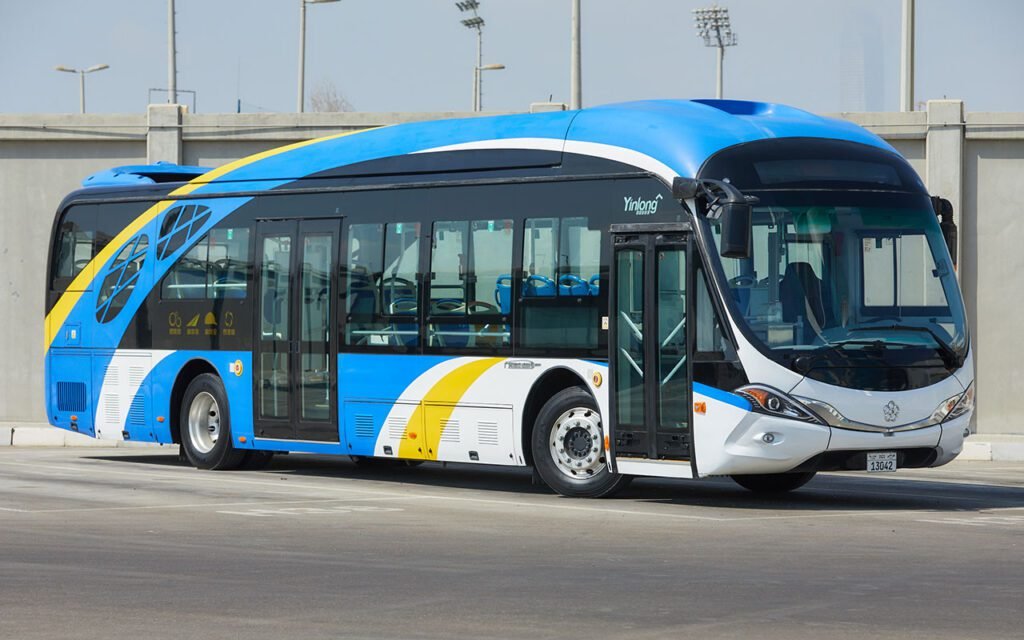Al Ain, the peaceful desert city known for its lush oases and deep-rooted traditions, is now stepping into the future with a powerful move towards sustainability. In a major milestone for public transport, Al Ain has become the first city in the UAE to introduce a fully electric bus fleet, signaling the country’s growing commitment to clean energy and eco-friendly infrastructure.
This green initiative aligns with the UAE’s larger vision to promote sustainable urban transport, reduce carbon emissions, and move toward a cleaner future. With this new step, Al Ain is not just keeping pace with global environmental trends—it’s setting the standard for other cities in the country.
The Green Transformation Begins
The launch of the electric bus fleet was officially announced by the Integrated Transport Centre (ITC) of the Department of Municipalities and Transport in Abu Dhabi. The new buses have already started operating within Al Ain’s city limits, connecting key locations like residential areas, markets, hospitals, and schools.

Unlike traditional diesel buses, these new electric vehicles produce zero tailpipe emissions. That means no carbon dioxide, no nitrogen oxides, and no noise pollution—making everyday commutes cleaner, quieter, and far more sustainable. This transformation is part of a broader plan to support the UAE’s Net Zero by 2050 initiative.
Officials have confirmed that the buses can run for long hours on a single charge and are equipped with fast-charging capabilities. On top of that, they’re packed with modern safety features and technologies that enhance passenger comfort. These include air conditioning optimized for desert climates, real-time route tracking, and smooth wheelchair access.
Why It Matters for Al Ain and the UAE
Al Ain’s shift to electric buses goes far beyond just transportation. It reflects a cultural and environmental shift in how cities in the UAE are planning for the future. Known as the “Garden City” of the Gulf, Al Ain holds a unique place in the nation’s heritage. This modern initiative preserves that legacy while paving the way for a cleaner, more advanced urban environment.

The move is especially important considering the growing population and increasing demand for public transportation. More residents and visitors are turning to buses for daily travel, and now they can do so in a way that supports the planet.
From a government perspective, the electric bus project also brings economic benefits. Although electric buses require a higher upfront investment, they are much cheaper to operate in the long run. Lower maintenance costs, reduced fuel expenses, and government incentives all make electric transportation a smart long-term decision.
Community Reaction and Public Support
The response from Al Ain’s residents has been largely positive. Many commuters have welcomed the change, noting the smooth ride and clean air experience. Parents are especially relieved to know their children are traveling on buses that are both safer and better for the environment.
Local businesses near bus routes have also shown support. Cleaner transportation systems tend to bring more people to public areas, which can boost foot traffic and stimulate local commerce. For daily workers, students, and tourists alike, the electric buses are becoming a new symbol of progress.
Environmental advocates in the UAE have also praised Al Ain’s efforts, calling the launch a “turning point” for sustainable urban development in the region.
Looking Ahead: What Comes Next?
The success of the electric bus fleet in Al Ain could inspire similar changes across other Emirates. While Dubai and Abu Dhabi have already tested electric and hybrid buses in the past, Al Ain is the first to fully implement them on a major scale.
Officials from the ITC have hinted that if the program runs smoothly in Al Ain, more electric buses may soon be introduced in Abu Dhabi and other key cities. Expansion plans could also include smart charging stations, solar-powered depots, and integration with metro and tram systems in the future.
In addition to electric buses, the UAE is also exploring other green transportation options such as hydrogen-powered vehicles, electric taxis, and shared micromobility solutions like e-scooters and bikes. These are all part of a larger strategy to create smart, connected, and sustainable cities.
A Step Towards a Cleaner Tomorrow

The launch of Al Ain’s electric-powered bus fleet marks a proud moment for the city and a bold leap forward for the UAE’s environmental goals. By adopting cleaner technologies and making sustainable choices, Al Ain is showing the world what the future of public transport can—and should—look like.
As more cities follow suit, the UAE is on track to become a regional leader in clean mobility. This isn’t just a story about buses. It’s a story about vision, responsibility, and the kind of future the country is building for its people.
Also read: Dubai’s Metro Expansion: A Game Changer for the City













